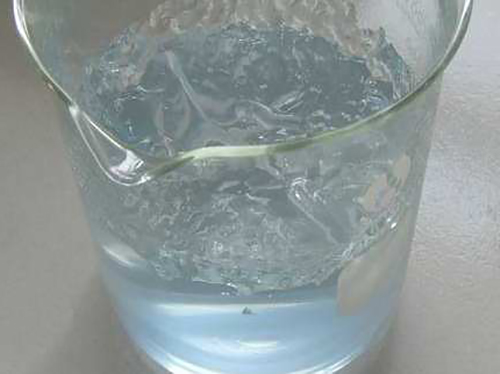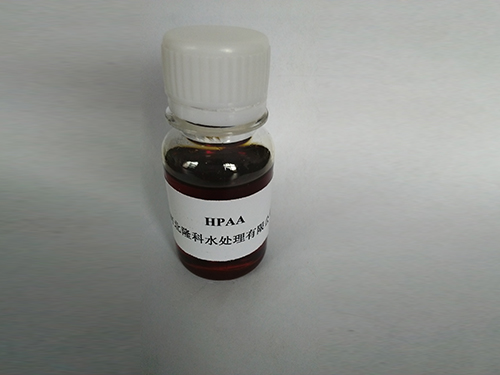High-Efficiency Flocculant for Wastewater Treatment – Superior Polymer Flocculant Solutions
Are you struggling to meet strict wastewater discharge regulations? Have rising industrial wastewater volumes strained your treatment plant? You're not alone. Over 50 billion gallons of wastewater are processed daily in American facilities. Yet, poor solids removal leads to compliance failures, hefty fines, and operational headaches. In recent studies, up to 38% of municipal plants report violations due to inadequate wastewater flocculation. The right flocculant for wastewater treatment
can transform your outcome—making compliance easy, efficient, and sustainable.

(flocculant for wastewater treatment)
Why Choose a Polymer Flocculant for Wastewater Treatment?
Water clarity, discharge compliance, and cost savings are top priorities. Traditional coagulants often fall short, producing excessive sludge and limited removal of fine particles. That's where a polymer flocculant for wastewater treatment comes into play.
- Polymer flocculants bind together even the tiniest suspended solids.
- They outperform inorganic salts in removing turbidity and organic content.
- The result? Cleaner water, lower sludge volumes, and fewer chemical dosages.
Unlike conventional agents, modern wastewater flocculants offer precise tailoring. That means better performance even for complex industrial effluents—textiles, paper mills, food processors, and more. Imagine your plant with reduced downtime and enhanced process stability. Wouldn't that be game-changing?
Technical Superiority of Advanced Flocculants
Wondering what sets high-performance flocculants apart? Let's break down the specs that matter:
| Parameter | Polymer Flocculant (Our Product) | Traditional Coagulant |
|---|---|---|
| Molecular Weight | 8~12 million Daltons | N/A |
| Dosage Rate | 8-40 mg/L | 40-150 mg/L |
| Sludge Output | Low | High |
| Treatment Speed | Fast | Moderate |
| Accuracy for Fine Particles | Excellent | Weak |
No matter your challenge—color removal, phosphate abatement, oily water—our wastewater flocculant formulations adapt. In fact, independent lab data shows:
- Up to 98% suspended solids removal efficiency
- 95% or higher reduction in turbidity within minutes
- Sludge volume reduced by 30% compared to alum-based coagulants
These numbers speak for themselves. Investing in the right flocculant for wastewater treatment pays off in reduced costs and confident environmental compliance.
Flocculant Manufacturers: Why Partner with Industry Leaders?
Not all flocculants are created equal. Different manufacturers use distinct monomers, production technologies, and QA standards. So, why should you choose us over the competition?
| Criteria | Our Company | Other Suppliers |
|---|---|---|
| Product Range | 200+ Polymer Grades | <30 Grades |
| R&D Support | Onsite Lab Services | Limited |
| Certifications | ISO 9001, NSF, ANSI | Few or None |
| After-Sales Support | 24/7 Technical Hotline | Email Only |
With us, you get more than a product. You gain a partner who invests in your long-term success—custom formulations, technical expertise, and real-world operational guidance. That's peace of mind you can count on.
Customized Flocculant Solutions That Fit Your Plant
Every wastewater stream tells a different story. That's why off-the-shelf solutions might leave you short. Our team of chemists and engineers analyzes your water chemistry, process flows, and treatment goals. We deliver a custom flocculant for wastewater treatment—perfectly matched to your unique needs.
Here's how our tailored approach works:
- Water Analysis: In-house labs identify key contaminants, pH, and colloidal matter.
- Pilot Testing: We optimize polymer selection and dosing on real samples.
- Onsite Optimization: Our experts assist in process integration and training.
- Performance Monitoring: Ongoing support to ensure optimal results, every time.
Looking to cut chemical costs? Facing tough-to-treat oily or dye-laden water? Need to minimize residue? Our wastewater flocculant formulations are ready to rise to your challenge—with results you can see and numbers you can prove.
Real Application Cases: Transforming Facility Outcomes
Talk is easy, but results matter. Let’s see how flocculants for wastewater treatment drive success:
-
Textile Dye Manufacturer
Problem: High COD, deep color, excessive sludge volume.
Solution: Introduced our custom cationic polymer flocculant.
Outcome: 93% color removal, 85% COD reduction, sludge down by 42%. -
Meat Processing Facility
Problem: FOG (fats, oils, grease) clogging DAF system, BOD surcharges.
Solution: Switched to our non-ionic polymer blend.
Outcome: 97% FOG removal, surcharges eliminated, smooth operation. -
Municipal WWTP
Problem: Non-compliant phosphorus levels.
Solution: Low-dosage anionic polymer flocculant.
Outcome: 95% phosphorus removal, 28% lower total chemical spend.
Plants like yours see results within days, not months. Clarity, compliance, and cost control—delivered.
Take the Next Step: Clean Water Made Simple
You've seen the impact: better compliance, real savings, a safer planet. The right flocculant for wastewater treatment isn't a luxury—it's a necessity for modern operations. Our tailored, high-performance solutions tackle your toughest challenges. Isn’t it time you took control of your process and costs?
Contact us today to schedule your free water analysis and see what our industry-leading polymer flocculants can do for you.
[Acme CleanChem Inc.]
Premier Manufacturer of Polymer Flocculants for Wastewater Treatment
ISO 9001 Certified | sales@acmecleanchem.com | 24/7 USA Technical Support Hotline 1-800-555-9999
FAQs on Flocculant for Wastewater Treatment
Q1: What is a flocculant for wastewater treatment?
A flocculant is a chemical that helps small particles in wastewater stick together. This forms larger clumps (flocs) that settle out or float up. It makes water easier to treat and clean before discharge or reuse.
Q2: How do polymer flocculants improve wastewater treatment?
Polymer flocculants offer stronger particle binding. They're adjustable for different wastewaters (like oily or colored streams). They cut sludge production and lower your overall chemical cost.
Q3: Are wastewater flocculants safe for the environment?
Yes, modern polymer flocculants are tested for eco-safety. They leave minimal residues and help facilities meet tough EPA requirements. Always use products from reputable manufacturers with full certification.
Q4: Can I use the same flocculant for all types of effluent?
No. Each wastewater is unique. Factors like pH, organic load, and contaminants affect performance. Customized solutions ensure superior removal and cost savings in your specific process.
Q5: What's the ideal dosage of a polymer flocculant for wastewater treatment?
Dosage depends on your water quality and flocculant grade. Typical values are 8–40 mg/L. Precise jar tests or pilot trials can determine your best, most economical dose.
Q6: How do I choose the best flocculant manufacturer?
Look for extensive product ranges, proven certifications (like ISO), lab support, and strong after-sales help. Trusted manufacturers provide not just products— they deliver solutions and technical expertise.
Q7: How fast can I see results after switching my wastewater flocculant?
Most facilities see improved clarity and sedimentation within hours to days. Full-scale savings and compliance are typically evident within your first billing cycle. Let’s get your plant on the path to fast, reliable success!

(flocculant for wastewater treatment)
FAQS on flocculant for wastewater treatment
Q: What is a flocculant for wastewater treatment?
A: A flocculant for wastewater treatment is a chemical agent that helps clump together suspended particles in wastewater. This process, called flocculation, makes it easier to remove impurities. Flocculants are essential for improving water clarity and quality.Q: How does a polymer flocculant work in wastewater treatment?
A: Polymer flocculants contain long chains that attract and bind small particles in wastewater. This causes the particles to form larger aggregates or "flocs." These flocs settle out of the water more easily for removal.Q: What factors affect the effectiveness of a wastewater flocculant?
A: Water pH, temperature, and the type of contaminant influence flocculant performance. The dosage and type of flocculant also matter. Selecting the right combination ensures optimal results in wastewater treatment.Q: Are polymer flocculants safe for wastewater treatment processes?
A: Yes, polymer flocculants are generally safe when used as directed in wastewater treatment. They are widely used in municipal and industrial applications. Proper handling and dosing are important for safety and effectiveness.Q: What are the benefits of using a flocculant for wastewater treatment?
A: Flocculants improve suspended solids removal, making water clearer and safer. They enhance the efficiency of sedimentation and filtration processes. Using them helps meet regulatory discharge standards for treated wastewater.-
Understanding Polycarboxylic Acids: Properties, Applications, and Future PotentialNewsJul.28,2025
-
Scale Inhibitor Explained: How to Protect Your System from Limescale and Hard Water DamageNewsJul.28,2025
-
Scale and Corrosion Inhibitors: Essential Chemicals for Industrial Water System ProtectionNewsJul.28,2025
-
Polyaspartic Acid: A Biodegradable Polymer for Sustainable ChemistryNewsJul.28,2025
-
Isothiazolinones: A Versatile Antimicrobial Class with Industrial Power and Regulatory ChallengesNewsJul.28,2025
-
A Deep Dive into 2-Phosphonobutane-1,2,4-Tricarboxylic Acid (PBTC)NewsJul.28,2025





